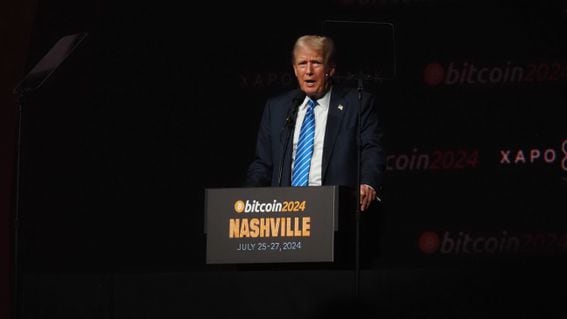
Implications of Trump's Recent Electoral Victory on Cryptocurrency
Exploring the potential impact of Trump's win on cryptocurrency legislation and the industry's future.
Donald Trump and the Republican Party experienced a notable success in the 2024 election, winning the presidency, Senate, and House. This victory is anticipated to accelerate the advancement of crypto legislation within the next two years, possibly signaling a more lenient regulatory approach.
You’re reading State of Crypto, a newsletter focused on the relationship between cryptocurrency and government. Click here to subscribe for future editions.
Taking Stock
The narrative shows that last week Donald Trump claimed his second presidential win in three attempts. During his campaign, he asserted that the U.S. was on track to become the leading crypto capital globally. It remains to be seen how he intends to fulfill these promises. Since the election, his only notable action linked to cryptocurrency includes appointing Elon Musk and Vivek Ramaswamy to oversee an advisory panel focused on governmental efficiency, which is aimed at reducing governmental expenses. Additionally, Trump has started selling merchandise featuring the DOGE dog.
Importance of This Shift
The crypto industry, both in the U.S. and globally, is keen on observing how Trump will shape policies and regulations affecting their operations.
Analyzing the Impact
-
The crypto industry demonstrates that financial contributions significantly influence politics in a post-Citizens United environment.
- Fairshake invested $40 million in Bernie Moreno’s campaign against Sherrod Brown. While Brown initially led, he lost amid a broader Republican triumph. Overall, Fairshake has backed over 50 winners while potentially only seeing a few losses.
-
The prospects for crypto legislation have improved. With Republican control of the House, Senate, and presidency, there’s a heightened chance for a new crypto bill to progress through Congress, impacting innovations like the Financial Innovation and Technology for the 21st Century Act.
-
The leadership of key regulatory bodies, including the SEC, Treasury Department, and CFTC remain unknown as Trump has yet to finalize appointments. These appointments will crucially direct the regulatory landscape for the crypto industry moving forward.
In conclusion, as regulations evolve, engagement with industry stakeholders is pivotal to better align policies with market realities.


